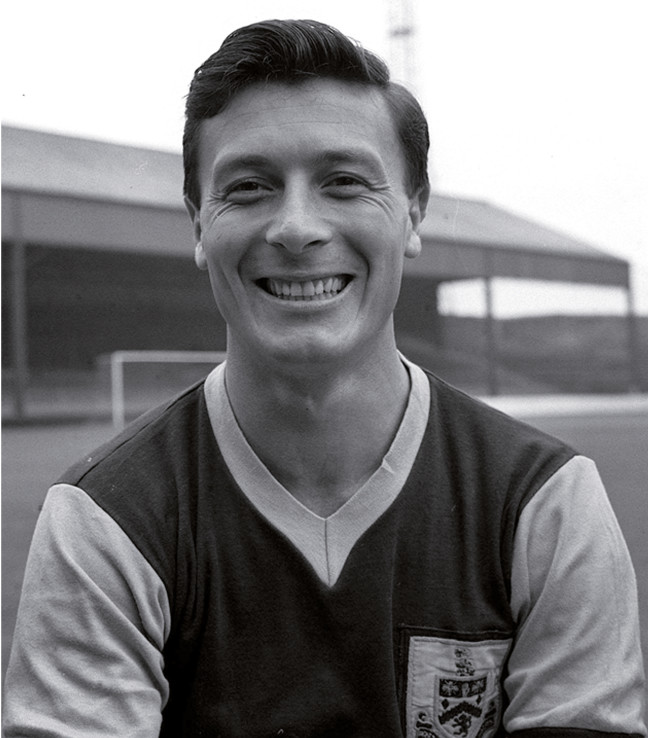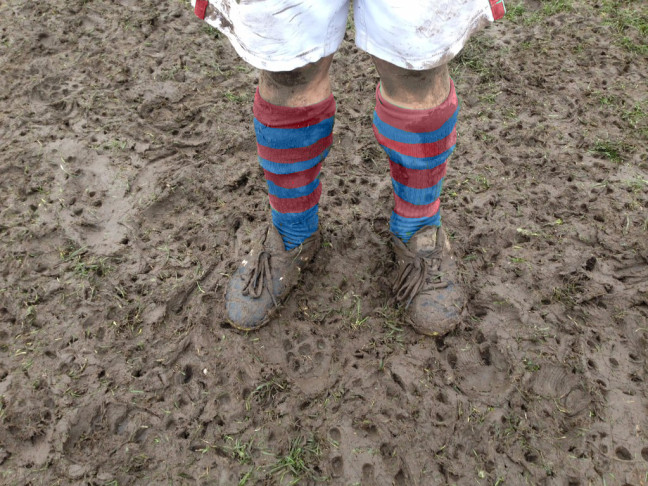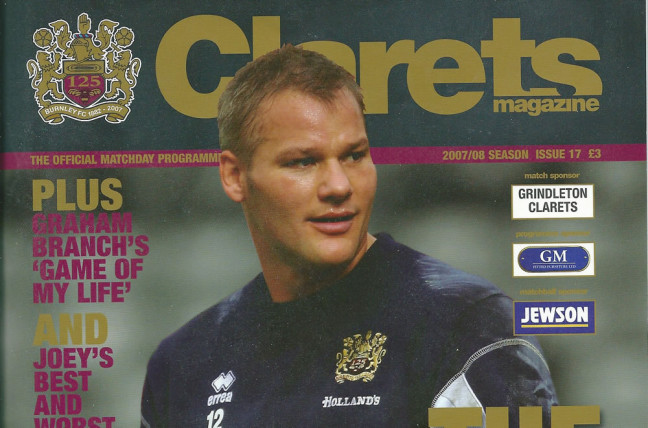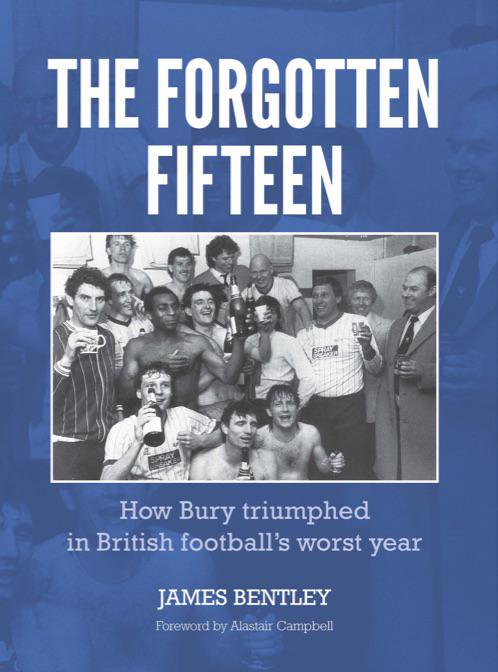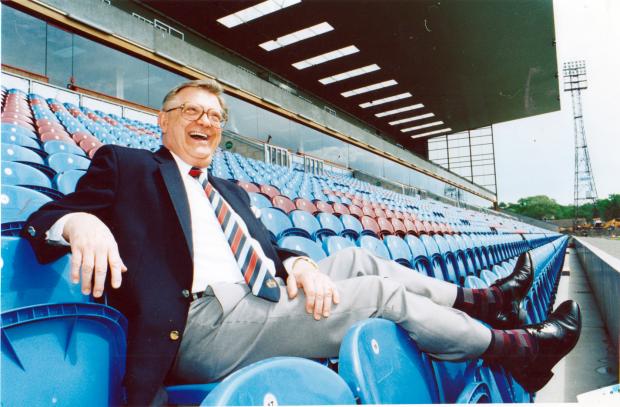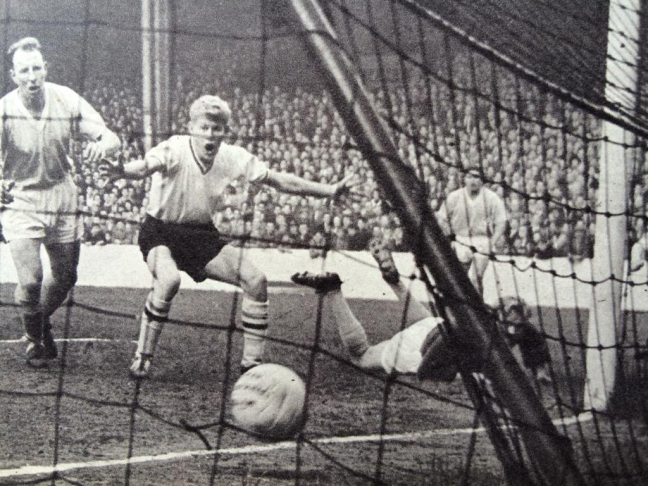BRIAN JENSEN at BURNLEY
He is known as the Beast and he has had this name since his West Brom days;
And the Beast, Brian Jensen, is someone for whom Chumbawumba might have specially written their hit song ‘Tubthumping’, with its line that goes:
“I get knocked down… but I get up again… you’re never going to keep me down.”
In truth Brian Jensen has had more ups and downs than a fiddler’s elbow but he symbolises the old maxim that if you keep at it, work hard, persevere and believe in yourself, you get there in the end.
In a number of seasons he was a keeper prone to making regular errors that cost points and games. At West Brom he was replaced by Russell Hoult. At Burnley he would win his place and then lose it. Other goalkeepers were bought to replace him, but it was always temporarily as he inevitably fought back and hung on to the shirt. In his own words he was always being “kicked in the teeth.”
Despite all this, by season 2008/09 through sheer hard work, dedication, application, and intense practice, he was thought of in some quarters as the best keeper in the Championship, shared the Burnley player-of-the-year award with Robbie Blake, was named the Carling goalkeeper of the tournament, and gave several master classes in the art of goalkeeping. In ten out of Burnley’s 61 games he was voted man of the match on the Clarets Mad website. If 2008/09 was one of the greatest seasons in Burnley’s illustrious history, Brian Jensen was one of the major reasons.
During that season there was an early home game against Reading when Burnley won 1–0 but the day belonged to Jensen who defied a rampant Reading with a string of saves. It was a portent of things to come. In the final run-in, including the play-offs, there were six clean sheets in the final eight games. At Chelsea in the Carling Cup on that never to be forgotten night in November he made great saves during the game itself and then saved two of the Chelsea penalties after extra-time had finished.
“When we were watching a video of Chelsea the day before the game, the gaffer broke the ice by saying, ‘come on lads they’ve just been beaten, it’s easy to turn them over’. Yeah they’d lost a couple of weeks earlier to Liverpool, their first home defeat in 86 games. Everybody started laughing and the boss said, ‘Just go out there and enjoy yourselves. You’ve come this far, it will be a great experience you’re never going to have again, make sure you enjoy it’. That was how we approached it, and maybe the fact that we were so relaxed is why we did so well. Drogba scored, but we came back and equalised in the second half and after that we always felt we could cause an upset.
In the shoot-out, as I saw it, there was no pressure. We’d already done ourselves proud in taking Chelsea that far at their place, so although the outcome was massive, I didn’t feel under any pressure – even with 40,000 breathing down my neck. I saved their first penalty, from Wayne Bridge, and their last from John Obi Mikel so I was portrayed as the hero but really all 14 players we used were heroes. If I was a hero it was only for 10 minutes, they were heroes for the first two hours.”
The night will be associated with two players; Akinbiyi who came on as substitute and scored the equalising goal, and then the defiant Jensen. Of the two, it was Jensen’s night. He broke Chelsea hearts but sent 6,100 Burnley fans home in raptures.
In the next Carling game, at home to Arsenal, he had a truly amazing game, saving a procession of one-on-ones. If it was Chelsea that was the glamour night, the night of shock and astonishment; it was the Arsenal night, when Burnley won 2–0, that brought back memories of those great Cup nights of the sixties at Turf Moor. His performance was truly astonishing.
***************************************
Born and raised in Norrebro, Denmark, Jensen began playing football as a defender. The team he played with, however, lacked a tall goalkeeper so the job went to him, (in his own words) “the biggest and the dumbest.” Attracting the attention of AZ Alkmaar he then impressed further in a youth tournament in the Netherlands where he was named best goalkeeper. From Alkmaar he was loaned to a small club for eight months, Hvidovre back in Denmark and at the same time finished an electricians’ course. Returning to Alkmaar he played just one game in the championship being second-string keeper behind Dutch international Oscar Moens.
He was next invited to train with West Bromwich Albion and here he was bestowed the soubriquet ‘Beast’ when the West Brom first choice Chris Adamson told reporters that he was “nothing but a beast.” The name stuck as soon as the fans shouted the name at him in his first game. He moved to West Brom on March 2000, reports vary as to whether it was £80,000 or £150,000, and made his debut against Tranmere Rovers keeping a clean sheet in a 2-0 win.
He stayed at West Brom for three years and was a regular for much of 2000/01 until the arrival of Russell Hoult saw him lose his place. Injuries and the form of Russell Hoult blocked his return and left him frustrated in the reserve team.
“I went on trial to West Brom,” he said in a later interview, Brian Little brought me over in March 2000. I arrived on the Friday, I was on the bench the following day when we lost 3–0 at home and Brian was sacked on the Monday. I have a lot to thank Brian for but I never got to work with him. I played the last 12 games that season, and then the new manager Gary Megson brought in Russell Hoult. What could I say? We won 28 games, 23 of them 1–0. It was clean sheet after clean sheet. Russell was brilliant. When somebody is doing that well in your position, you have to take it on the chin. Fortunately Burnley came in for me. I would have taken anything, just to prove West Brom wrong.”
His first-team place was never regained so that in 2003 Stan Ternent at hard-up Burnley, eager to replace goalkeepers Marlon Beresford and Nik Michopoulos, saw Jensen as the replacement and signed him on a free transfer.
“West Brom gave me my big opportunity and I’m thankful for that. It was a good achievement for me and it was nice to be there.”
Despite the aggravations at West Brom and an opportunity to return to Denmark, Jensen opted to remain in English football where he was determined to stay. “I had a couple of offers from Denmark but I told all the managers in Denmark that my first priority was here. I wanted to stay in English football because that’s my style of football.
The giant Dane put his name to a two-year contract and looked forward to the new challenge – and a regular place in the side. “It’s a challenge and I’m just going to do my best,” he said.
With that supreme irony that happens so often in football his first League away game for Burnley was against West Brom. Burnley lost 1–4 making it seven goals conceded in the first two League games. It was a far from easy season for the Clarets who by the end were just two points away from relegation. His form had its ups and downs during the season but one particularly stunning game was at Sunderland. Burnley came back with a 1–1 draw and it was down to him with a series of remarkable saves.
“There were three saves I could pick out.” The save from a Kevin Kyle header was his favourite. “It was just a reaction save and how it went round the post I don’t know.” The spectators’ favourite, however, was the injury time tip over the bar to foil Marcus Stewart.
Being someone able to analyse his own game Jensen knew that at this time he was not consistent enough. “I’m starting to be a little more consistent but I’d like to keep a few more clean sheets. It’s irritating me that the goals are going in,” he said at the time. Sometimes it was not his fault and certainly he had several very good games.
“Jensen stems a deluge,” began the Independent report by Norman Fox on the Millwall Burnley Cup game in February 2004 when Burnley lost.
The final season of Stan Ternent’s tenure was beset by shortage of money. At one point relegation looked a distinct possibility but one game stemmed the downward tide. It was at Bradford City and there was an unlikely 2 – 1 win with a last minute Ian Moore goal. But prior to that, it had been Jensen’s day with what Bradford manager Bryan Robson called, “a world-class display,” when he made save after save.
For the new season new manager Steve Cotterill looked for a more consistent keeper and Welsh international Danny Coyne was brought in from Leicester. If Jensen was irritated or dissatisfied he did not show it as Coyne took the jersey. Coyne began well but a bad injury at QPR put him out of the game for six months. Jensen duly came back into the team.
With Coyne fit again, Steve Cotterill introduced a clear policy to alternate the two goalkeepers – Coyne and Jensen – and it was up to each of them to stake their claim. The decision to alternate the two raised some eyebrows. Coyne was happy; it was the chance to get some games. Jensen was polite and tactful. “The manager has told me there is no number one round here. He plans to play us both on and off until the end of the season. It’s a strange one really but I can see what the gaffer wants to do. At the end of the day we are both good keepers and I think his decision will work out well for the club. It gives me a break after playing in the last 29 games and I certainly think it can work.”
It is not unreasonable to assume that privately Jensen might well have been far from happy with the situation, but to have said so publicly would have resulted in another period where he was ostracised by the manager.
He was awarded a new three year contract and asked the Denmark manager, Morten Olsen, to take a look at him. “I thought that last season in particular they would have come out to watch me. I broke the record here for clean sheets at Turf Moor and I thought personally I was doing pretty well and so did everybody else. They never even sent anyone just to have a quick look. I was a little disappointed.”
On recovery from his injury Danny Coyne eventually regained his place ousting the Dane. But again another freak injury put Coyne out. Again Jensen came back into the side for most of 2005/06.
Consistency was still elusive, Coyne suffered a third injury on his return, and in January 2007 manager Cotterill unhappy with Jensen’s performances took Mike Pollitt on loan from Wigan. There were differences between Jensen and Cotterill and he was not even on the bench. Supporters thought this was ridiculous. There is the story, apocryphal perhaps, that it was the chairman’s wife who persuaded Cotterill that it all looked rather silly and would look even sillier if there was an injury to Coyne, after he’d returned for the departed Pollitt, during a game and Jensen was sat in the stands twiddling his thumbs. As it happened back came Jensen yet again.
But still Cotterill looked to find a replacement for him. The injury prone Coyne was released and in came the Hungarian Gabor Kiraly, he of tracksuit bottom fame. Again Jensen was relegated to the number two spot. Having seen off a Welsh international, he now faced a Hungarian international.
Kiraly began well but his eccentricities were evident. Jensen came back for a couple of Carling Cup games and won the game for Burnley at Grimsby in the penalty shoot-out. He was equally impressive in a 3–0 win over Oldham. He kept his place for the next game at Colchester but a last minute clanger in the next game against Blackpool at Turf Moor allowed Blackpool to take a point. Back came Kiraly. In truth the goalkeeping situation was becoming a joke and being dropped again after the Blackpool game led to another rift between himself and Cotterill.
“It’s all very well being dropped but it has to be justified. Everyone knows I didn’t think that was the case otherwise I wouldn’t have asked to be on the transfer list. There were a few things that the manager Steve Cotterill and I didn’t agree with, but that’s how it goes in football.”
Manager Cotterill was next replaced by new manager Owen Coyle. Kiraly at this point had the goalkeeper’s jersey but two dreadful games where he came in for vast criticism, a 0–3 defeat at Blackpool and a home Cup defeat against Arsenal, saw him lose his place. Yet again back came Jensen.
Still the pantomime was not over. Bad mistakes by Jensen saw Kiraly come back yet again. But then Kiraly had a nightmare game against Wolves. Once more in came Jensen and 2007/08 petered out with no solution in sight to the goalkeeping problem – except that out went Owen Coyle to sign Peruvian international Diego Penny – the new number one for season 2008/09.
Penny looked OK. Pre season games had been excellent. Confidence was high. New signings were in place. There was a quiet optimism. The first game of the season was away at Sheffield Wednesday, but within minutes at Sheffield, Burnley were 0–2 down and the game was lost 1–4. Penny was shell-shocked and Jensen came back yet again for the next game at Bury in the Carling Cup. His performance was so good that Coyle retained him. Faced with competition from a Welsh international, a Hungarian international, and a Peruvian international, here was Jensen back again and the stage was set for what was going to be a marvellous season both for him personally and the team as a whole.
Perhaps the first indication of what was to come was the game at home to Reading on October of ‘08/09. “Brian Jensen heroics deny frustrated Reading,” began the Telegraph report. “While Blake took the scoring accolades, it was goalkeeper Brian Jensen who emerged the real home hero producing a string of sterling saves.”
“He really replicated what he does in training. He is a top class, quality goalkeeper,” said his manager. Those words were music to Jensen’s ears and his display was a foretaste of even better things on the horizon. It was about to get even better.
**************************
Arsenal arrived at Burnley for the 2008/09 Carling Cup game, not quite as all-powerful as they had once been, not quite the same wonderful team that they had been with Pires, Henry and Viera, but nevertheless still one to be to be much admired and respected. A top four side definitely, but inconsistent, beatable, and their days of title and Cup wins were over. It had been the ‘reserves’ and youths who Wenger had played so far in the Carling Cup and they had swept all before them with big wins over Sheffield United and Wigan Athletic. The nation purred at their silky skills, their interplay, the lovely passing, their technical skills and certainly the quality of the goals.
These had been home wins though and it was generally felt that these youngsters, good as they were, would find a cold, wet, inhospitable night in Lancashire, changing in cramped, basic dressing-rooms, to which they were unaccustomed, a far different prospect than the comfort and sophistication of the Emirates Stadium. Nothing had changed in these claustrophobic, tiny changing rooms since they had been built 40 years earlier in the days of Bob Lord. “All they get is a chair and a coat hanger,” said CE Paul Fletcher with a twinkle in his eye, “this isn’t a hotel.”
With Fulham and Chelsea already despatched, (capital punishment was the slogan), Burnley, the team town and supporters relished the visit of Arsenal. There was a palpable sense of a win in the air especially as conditions on the night were appalling. Snow had fallen in Burnley and the surrounding areas. It was horribly cold. It was bad enough to prevent some fans getting to the ground. But the pitch was clear and the night was right for an upset. Thanks to a wonderful team display, and a marvellous individual performance by Jensen, the upset duly came.
19, 045 people were there on December 2nd 2008. It was a match of a lifetime for Jensen and a game to remember for the Burnley fans who roared themselves hoarse. Burnley had not been in the quarter-finals of a major competition for 25 years.
The bare stats say that a goal in each half from Kevin McDonald won the game but give no inkling of the pulsating 90 minutes that took place with millions watching on TV and Jensens’s heroics.
4 mins: A sign of things to come came when Jensen saves from Nicklas Bendtner who beats the offside trap and is clean through.
Two minutes later the Clarets are ahead but within minutes of that Jensen saves a certain equaliser when again Bendtner has a golden chance.
10 mins: Carlos Vela’s flick-on puts Bendtner in the clear again. Jensen saves the one -on-one.
12 mins: Jensen saves a shot from Merida.
20 mins: Jensen saves from Carlos Vela.
37 mins: More opportunities come the Clarets way but in the 37th minute Jensen again keeps Burnley in the game when the best move of the game sees Mark Randall break through and shoot powerfully. The shot is beaten away by Jensen. It seems over and again that Jensen must be beaten as Arsenal play their one-touch football.
41 mins: Jensen again as he saves from Carlos Vela.
49 mins: Merida shoots having beaten three defenders but Jensen’s positioning forces him to put his shot wide.
57 mins: Goal by Burnley as McDonald latches on to Eagles’ throw and scores with the outside of his foot. Instead of being three or four goals down, Burnley are now ahead. 2–0 it might be but the game is far from safe as Arsenal still make chances and force more saves from Jensen. There are occasions when you think they must score but there is just no way round, through or past the giant keeper.
87 mins: A slip from Caldwell lets Vela in. His cross is hit by Bendtner whose shot is smothered by Jensen who again positions himself well and the ball flies over the bar. The look on Bendtner’s face says it all. “This man is unbeatable.”
“The 33-year-od Jensen was the scourge of Arsenal with a heroic display of goalkeeping as Owen Coyle’s Burnley ruined Wenger’s hopes of lifting the Carling Cup with the youngest team in the competition’s history. McDonald’s goal in the 6th minute put the hosts ahead, yet it was Jensen’s performance at the opposite end that defined Burnley’s night.” The Guardian
“For all the clever touches, delicate passes and intelligent movement, the visitors could not find a way past Brian Jensen in the home goal. Four times in the opening half, Carlos Vela and Niklas Bendtner created opportunities. Four times the Danish goalkeeper stood tall to deny them. He remained a frustrating figure.” The Herald
Arsenal’s kids… were unlucky to run into big Brian Jensen – the Best of Burnley – who has grabbed his share of glory in this competition. The keeper made a string of saves to deny the visitors a place in the last four. Jensen, the penalty shoot-out king who knocked out Chelsea put his frame in the way time and again as Arsenal went one-on-one so often. Nicknamed the Beast because of his bulk, Jensen made sure the Lancashire club’s Carling Cup adventure continues…” Daily Mirror
“Burnley hero Brian Jensen has his sights on lifting the Carling Cup after dumping another of the big four… he overshadowed Claret’s two-goal Kevin McDonald with SIX great saves to deny Arsenal’s kids. Gunner’s boss Arsene Wenger said: we had six one-on-ones with their keeper sand did not score any of them…” The Sun
“Burnley fought their way to the semi-finals on the back of a superb display of goalkeeping from the enormous Dane Brian Jensen. The 33-year-old made four point-blank saves in the first half alone… Daily Mail
A stunning performance by goalkeeper Brian Jensen booked Burnley’s first major semi-final for 25 years.” Telegraph
The reward for Jensen, as well as the not unexpected MOTM award, and everyone else was a place in the semi-finals against Tottenham. A rather more unusual and unexpected reward, was the presentation of a five-foot sausage sandwich to commemorate his sterling displays. Burnley butcher George Heys and baker Glen Whiteside decided to pay tribute to him by naming the huge sandwich “the beast.”
“I’ve been in the game a long time,” said an astonished Jensen, “but having a sandwich named after you is something I never expected. Apparently they’ll come up with something else if we win promotion. It’s a shambles (he uses the word as we might use the word mad). A butcher turned up at the stadium with the biggest hot dog I have ever seen and now I have got a couple of bags of sausages back home. It was funny at first but I did so many interviews about it that when I was asked to do another one I said no. It was time to concentrate on football, not sausages.”
It is undoubtedly that concentration that has enabled Jensen to see off each rival who has arrived at the club and to bounce back from his early career setbacks. Club goalkeeping coach Phil Hughes has no doubts as to why Jensen had the best season of his career in 2008/09. “Brian Jensen is one of the hardest working keepers I have ever worked with,” he said. “Brian has always had the attributes to be a top goalkeeper. He has the size, the work ethic and technically he is absolutely fine.
“Brian is not a player who sulks or someone who turns his back on competition,” added Hughes referring to the arrival of each new keeper at the club. “He meets every challenge head on and he’s managed to keep ahead of everybody who has come in through determination, self-belief and hard work.”
The world of the goalkeeper is in the spotlight for the full 90 minutes of any game. Whereas one slip from an outfield player might not be costly, one mistake from the goalkeeper and fingers point and heads shake. One serious mistake can cost the game. If an outfield player can hide or have a quiet spell during a game, there is no such luxury for the keeper. A centre forward misses a golden opportunity and a week later if he scores the mistake is forgotten. Not so with a goalkeeper whose mistakes can be remembered for weeks. Only the strong survive, and Brian Jensen is very, very strong.
At the Gawthorpe training ground the goalkeeper arrives 30 minute early for individual coaching. They receive an hour and quarter specific goalkeeping practise each day. On top of that there is the shot stopping drill that comes when other players have their shooting sessions.
A goalkeeper might be called upon in a game to make routine saves and then perhaps two or three saves that are out of the ordinary and quite special. In the Arsenal game Brian Jensen made six saves that were quite extraordinary. It was his night and the match of a lifetime.
One set of Turf Moor programme notes, as his season of a lifetime came to a close, likened to his career as a soap opera – and one with a happy ending. “I have always had kicks in the teeth. The only season I have known for a fact that I would be playing was my first season here in 2003/04. Since then I have always been fighting with really good goalkeepers and it’s always been ‘here we go again’.”
After Arsenal came Tottenham in the semi-final. Having lost 1–4 at Tottenham in the first leg, despite a first half performance that could not have been bettered by Barcelona, the return leg at Burnley was won 3–0 so that at the end of normal time the tie was level. In other competitions the away goal they scored would have taken them to Wembley but not so in the Carling when Tottenham then had an extra 30 mins to try to score again. This they did with just two minutes to go.
The goal that took Tottenham through was a perfectly placed shot by Pavlyuchenko, but even so Jensen got a finger to it and nearly saved the day. It was a cruel, cruel ending.
“Because we were up against the wall against Spurs and everyone had written us off, we showed everyone what we were about and in the end it was a case of so near, so far.”
But referring to the Arsenal game he added: “When I made the early saves I felt nobody was going to beat me and I’ll tell you it’s the best feeling in the world.”
The reward for Jensen and all his perseverance was yet another never to be forgotten day at Wembley in May 2009. In the final weeks of the season everything went right for Burnley Football Club, and Jensen contributed to six clean sheets in the final eight games. How important they were. On Wembley day he wasn’t called upon to perform heroics as he had been in other games; the day belonged to Wade Elliott and his marvellous goal. The victory, though, meant Premier League football at last for ‘The Beast’, this amiable giant of a man. Everything comes to he who waits, goes the old adage. In Brian Jensen’s case what it should really say is, everything comes to he who works and perseveres damned hard.
Life after the Premier League season took another turn for Brian. Brian Laws upped his salary and his very entertaining book, full of insights, was an instant hit. He left the club at the end of season 2012/13 having been reserve to Lee Grant for much of the final two seasons of his Burnley career. An appearance at Barnsley in the FA Cup in 2013 was his final game and sadly it was marred by the kind of error that is a ‘keeper’s nightmare. It was a cruel way to appear for the final time other than a cameo few minutes in the very last game of the season on May 4th. With the 2–0 win assured, manager Sean Dyche brought him on so that the crowd could say a final thank you to him and he could have one last touch of the ball in the first team. It was an emotional moment.
Following the news of his release in interviews for the No Nay Never website with Kevin Robinson, Jensen provided insights into the managers he had had worked with at Burnley – all bar Brian Laws that is, upon whom he would make no comment. Stan Ternent he described as “old school”, a man you could learn from. “I was always fascinated by him and on top of that he was the nicest man in the world. “A good manager who really loved the club and his training sessions were really good.” With total honesty it was in this interview that Jensen acknowledged that in his first season he was so inconsistent, ten out of ten one week and “absolute garbage the next.”
“I just couldn’t work with Steve Cotterill,” he admitted. In fact in his book he is quite scathing about him. Whilst describing him as “not a bad manager, some of the stuff he was saying and doing was good,” simultaneously it was not a good time, in and out of the team over and again. Cotterill never convinced him that he was either wanted or rated. “Working under him was a battle.” Jensen was convinced he had upset him in some way but could never fathom why. Hence the transfer requests despite the fact that he never really wanted to leave. Since those difficult days he and Cotterill have been in touch and “there are no grudges held.”
About Owen Coyle he was quite adamant that had he stayed at the club he would not have been relegated. Coyle’s belief and man-management skills were inspirational. “And when someone believes in you 100% the difference it makes is massive… he just made us all feel wanted.” He was devastated when Coyle left and the impact of Coyle’s departure will probably never be properly calculated. The heart of the club was ripped out and a whole group of players were left in a vacuum. “Obviously there was a sour taste; he was a guy that believed in me… I’m devastated because I’m 100% sure that we would have stayed up. I’m sure he would have made sure we got those extra five or six points that would have kept us in the Premier League.”
He was sympathetic towards Eddie Howe hinting that resources that were promised to him never materialised so that he could never have taken the club on to promotion. Thus, Howe did not find it easy and Jensen had no issue with him going back to Bournemouth. Considering that Sean Dyche was the guy who released Jensen and he was indeed upset to be released, he was magnanimous in his appraisal of him. He too, he suggested needed the backing of the Board.
He says he will always be a Claret. “Burnley put my name around the world.” Say what you like about him, he served the club to the very best of his ability, for ten years. There were several memorable occasions when he was unbeatable. Some players are remembered for many, many years and some are soon forgotten. Brian Jensen will be one of those remembered with gratitude. That flying save against Chelsea’s last penalty in the Carling Cup will be an image that lasts for years; and will be in the club’s history books forever.
